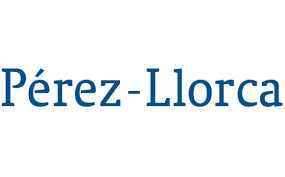September 2021
In its recent decision on the Komstroy case, the Court of Justice of the European Union has extended the logic established in the Achmea case to arbitrations within the EU derived from the Energy Charter Treaty. Thus, it considers that, under Union law, arbitrations involving disputes arising between a Member State and an investor from another State of the European Union are not valid.
1. Facts and main proceedings
In its recent judgment of 2 September 2021, the Court of Justice of the European Union (“CJEU”) ruled against intra-EU arbitrations under the Energy Charter Treaty (“ECT”). The Komstroy case (Case C-741/19) stems from a series of contracts entered into in 1999, whereby Energoalians, a Ukrainian distributor, indirectly supplied electricity to Moldtranselectro, a Moldovan public company, for distribution in the Republic of Moldova. After a series of non-payments, the Ukrainian distributor decided to initiate arbitration proceedings against the Republic of Moldova, claiming that the state had failed to fulfil its obligations under the ECT. It resorted to one of the dispute resolution methods included in the ECT: the formation of an ad hoc arbitral tribunal under Article 26.4 ECT. Paris was designated as the seat of arbitration.
The arbitral tribunal declared itself competent to hear the dispute and, in an award handed down in 2013, ordered the Republic of Moldova to compensate Komstroy LCC (successor in law to Energoalians) for having breached its obligations under the ECT. Moldova brought an action for annulment before the Paris Court of Appeal, alleging a breach of public policy regarding the jurisdiction of the arbitral tribunal. The Court of Appeal initially accepted the State’s argument and annulled the award, but the French Court of Cassation set aside the judgment and referred the parties back to the Court of Appeal.
It is at this point that the Paris Court of Appeal considered that, in order to decide on the jurisdiction of the arbitral tribunal that handed down the award, it was necessary to determine whether the dispute concerned an investment within the meaning of the ECT, and whether this had taken place in the ‘area’ of Moldova. The Court of Appeal therefore stayed the proceedings and referred three questions to the CJEU for a preliminary ruling, all of which concerned the concept of investment under the ECT.
2. Jurisdiction of the CJEU to issue preliminary rulings
Both the Council of the European Union and several Member States (Sweden, Denmark and Hungary) objected to the jurisdiction of the CJEU to provide answers to the questions raised, given that the parties to the main dispute are not part of the European Union and that EU law is not applicable to the dispute at issue.
However, the CJEU confirmed its jurisdiction on the basis that the ECT, as an agreement concluded by the Council of the European Union, forms an integral part of the legal order of the European Union. Accordingly, the CJEU has jurisdiction to interpret the provisions of the ECT and, in particular, the concept of “investment” within the meaning of the ECT.
According to the CJEU, the fact that both parties are not resident in an EU Member State does not affect this, as they chose Paris as the seat of arbitration, and therefore French law (of which EU law is a part) acts as the lex fori in the arbitration proceedings. The conclusion is that “the establishment of the seat of arbitration on the territory of a Member State, in this case France, entails, for the purposes of the proceedings brought in that Member State, the application of EU law, compliance with which the court hearing the case is obliged to ensure”. This logic led the CJEU to consider that, as long as EU law is being applied (according to this novel criterion), intervention by the CJEU is appropriate.
3. Extending the Achmea doctrine to intra-EU arbitration under the ECT
Having declared its jurisdiction, and as a preliminary step to answering the questions referred by the Paris Court of Appeal, the CJEU devoted the most significant part of its judgment to ruling on whether disputes between an investor from one Member State and another Member State can be settled by arbitration under the ECT.
At this point it is important to recall that, in its judgment of 6 March 2018 on the Achmea case (Case C-284/16), the CJEU already declared that arbitration clauses contained in EU Bilateral Investment Treaties (BITs) are not compatible with EU law, insofar as an arbitral tribunal is not a court or tribunal of a Member State. In reaching this conclusion, the CJEU relied on two grounds: (i) an arbitral tribunal cannot make a reference to the CJEU for a preliminary ruling, and (ii) arbitral awards are subject to very limited review by national courts.
The conclusion of the CJEU in the ECT case (the Komstroy case) now is essentially the same as that of the case on BITs within the EU (the Achmea case). It considers that the ECT is an act of EU law and that, therefore, an arbitral tribunal constituted under it will have to interpret and apply EU law. However, according to the CJEU, this is a function reserved solely to the judicial system of the European Union, of which arbitral tribunals do not form part.
It is therefore foreseeable that investors who obtain a favourable award will prefer to turn to other jurisdictions outside the EU for enforcement.
In any case, it is likely that, going forward, investors will try to fix the seat of arbitration against Member States outside the European Union, in order to minimise the risk of the award being annulled on the basis of CJEU precedents.
For more information,
please contact:
Fernando Bedoya
Litigation and Arbitration Partner
[email protected]
T: +34 91 423 20 75
Ignacio Santabaya
Litigation and Arbitration Partner
[email protected]
T: +34 91 432 51 26


